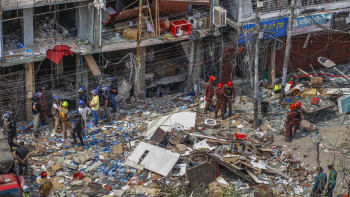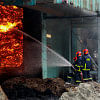Fire drills for business premises are a must

Fire drills are more than just a legal obligation or a routine procedure for businesses; they are a critical factor in ensuring the safety and well-being of employees, customers, and assets. A fire drill is a method of practicing how a building may be evacuated in the event of a fire or other emergencies. In most cases, the building's existing fire alarm system is activated and the building is evacuated using the nearest available exits, as if an emergency had occurred.
A fire drill aims to train and reinforce proper evacuation routes and practices. The goal is to have the proper actions be an automatic response whenever fire alarms sound so that everyone safely evacuates the area in an orderly manner. In the event of a fire or other emergencies, employees must know how to respond swiftly and safely. Regular fire drills provide priceless opportunities to practice evacuation procedures, familiarise oneself with escape routes, and become familiar with the location and operation of firefighting equipment such as fire extinguishers.
Certainly, compliance with fire safety regulations is not just a legal obligation but also a moral concern. Business organisations have a duty toward their employees and visitors to provide a safe working environment, and fire drills are an essential aspect of fulfilling this commitment.
Outside regulatory compliance, fire drills play a crucial role in developing a culture of safety within organisations. When employers prioritise safety and invest in proactive measures such as regular training and drills, it sends a powerful message to employees that their well-being is respected.
Therefore, employees are more likely to implement safe behaviours, remain vigilant about potential hazards, and actively participate in emergency awareness actions. A strong safety culture not only enhances employee morale and loyalty but also reduces the possibility of accidents and incidents occurring in the workplace.
Fire drills serve as valuable learning opportunities for recognising weaknesses in emergency response plans and evacuation procedures. By observing how employees react during drills, businesses can identify areas that require improvement, such as inefficient evacuation routes, inadequate signage, or communication failures.
Based on feedback and observations from fire drills, organisations must implement corrective measures and enhancements to their fire safety procedures. This practical approach must help mitigate risks and ensure that emergency response plans remain effective and up-to-date.
In addition to practical benefits, fire drills also contribute to building confidence and resilience between employees. Through practicing or rehearsing emergency scenarios in a controlled environment, individuals gain a sense of empowerment and readiness to handle actual emergencies calmly and successfully.
Additionally, the self-assurance gained from participating in fire drills extends beyond fire safety. It encourages a broader mindset of readiness and adaptability, enabling employees to respond confidently to various emergencies or crises that may arise in the workplace.
In summary, fire drills are very essential for any business organisation, serving as a basis for effective emergency preparedness and risk management. By prioritising fire safety through regular fire drills and training, businesses must protect lives, comply with regulations, promote a culture of safety, and continuously improve their emergency response competencies.
Eventually, the investment in fire drills is an asset in the safety, resilience, and sustainability of the organisation. As the adage goes, "It's better to be safe than sorry," and fire drills make available businesses with the practical measures necessary to prevent disasters and protect their most valuable assets, the people.
Taslim Ahammad is the assistant professor at Department of Management Studies in Bangabandhu Sheikh Mujibur Rahman Science and Technology University, Gopalganj.
Views expressed in this article are the author's own.
Follow The Daily Star Opinion on Facebook for the latest opinions, commentaries and analyses by experts and professionals. To contribute your article or letter to The Daily Star Opinion, see our guidelines for submission.

 For all latest news, follow The Daily Star's Google News channel.
For all latest news, follow The Daily Star's Google News channel. 












Comments